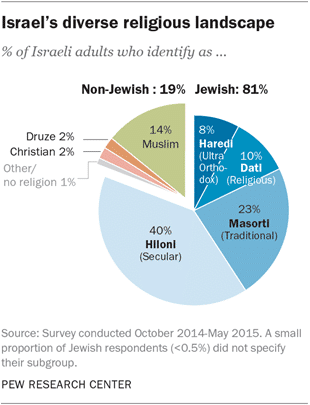On Saturday, October 7, Israel suffered the worst terrorist attack in its history. People around the world watched in horror as Hamas launched around 5,000 rockets into Israel, and Palestinian militants broke through checkpoints and border fences into Israel, proceeding to massacre hundreds of men, women, and children and taking others as hostages. As of October 14, around 1,300 Israelis have been killed, most of whom were civilians.
Unfortunately, these atrocities in the Middle East are uncovering a lot of anti-Semitism within some Christian circles. Some professing Christians claim that Palestine has just as much moral high ground as Israel and that the only reason Christians have historically supported Israel is faulty interpretation of Scripture. For example, see this tweet from Andrew Torba, co-founder of Gab and co-author of Christian Nationalism: A Biblical Guide For Taking Dominion And Discipling Nations:

So what should be the Christian response to the attacks against Israel? Should Christians support the nation of Israel, and if so, why should they? Is the only reason Christians support Israel based on faulty biblical interpretation?
Should we expect Israel to experience God’s special blessing?
Of course, Christians have had an intramural debate for many years about whether Israel presently enjoys the status of God’s chosen nation, or whether they forfeited that blessing in their rejection of the Messiah. And it is also true that many Christians have supported Israel because of their belief that Israel’s occupation of the Promised Land in this age is part of biblical prophecy.
Certainly dispensational premillennialists believe that Israel is still God’s chosen nation and that one day all Israel will be saved and will experience of complete fulfillment of God’s promises to them as a geo-political nation state during the millennial reign of Christ on earth. For example, John MacArthur insists that “there is still a future and a kingdom involving the salvation and the restoration and the reign of the nation Israel, historical Jews.”
Yet it is not only dispensational premillennialists who believe in a future for national Israel. Indeed, many historic Premillennialists, Amillennialists, and even some Postmillennialists have affirmed the salvation and restoration of the nation of Israel, including Martin Bucer, Theodore Beza, William Perkins, Isaac Watts, Jonathan Edwards, J. C. Ryle, Martyn Lloyd-Jones, and Charles Spurgeon (see relevant quotations here). Of course, most Amillennialists, Postmillenialists, and even some historic Premillennialists today deny that national Israel has any distinct future in addition to the church.
With each of the eschatological views that do believe national Israel has a future in God’s plan, the salvation and restoration of Israel will occur after Jesus comes again.
However, and this is the critical point, with each of the eschatological views that do believe national Israel has a future in God’s plan, the salvation and restoration of Israel will occur after Jesus comes again. In other words, even those who believe that Israel will be restored do not believe that restoration comes as a result of any geo-political victories accomplished by men. Rather, these views believe that the restoration of Israel will be preceded by the full salvation of Israel (i.e, they will believe in Jesus the Messiah), and that restoration happens after and because of the return of Messiah to earth.
Further, both Premillennialists and Amillennialists affirm the immanent return of Christ, that is, they believe that Christ could return at any time. He could have returned before the current nation-state of Israel was established in Palestine, and he could return if the nation was ever dispersed again. Christ’s return in both of those eschatological views is not dependent upon whether or not Israel occupies the land in this present age. In both Premill and Amill eschatologies, the next event on the God’s prophetic timetable is the Second Coming of Christ.
This is important for our present discussion for this reason: contrary to what many evangelicals believe, the possibility of a restored nation of Israel as fulfillment of biblical prophecy cannot be the reason Christians support the nation of Israel today. Even Premillennial Dispensationalists should not be “reading eschatology in the news” if they are actually being consistent with their own theological tenets. Even if national Israel has a God-given right to the Holy Land, they have no divine right to the land in this present age, even in dispensational teaching. To quote MacArthur, a dispensationalist, again,
Israel right now is not under divine protection. They are under the promise of God that they will be perpetuated as an ethnic people, but this current group of Jews that live in the world today and in the nation Israel are not now under divine protection. They’re apostate. They’ve rejected their Messiah. They are under divine chastening. But they are still a people and will be to the end.
The fact is that during this present age, no nation enjoys God’s special covenant blessing, even Israel. The only view that might theoretically support Israel for eschatological reasons is a version of Postmillennialism that believes Israel will become a Christian nation before Jesus comes again.
Therefore, Christian support of Israel today should never be based on eschatology.
However, I do believe Christians should support Israel, not because of any eschatological prophecy, but because of God’s intention for all nation-states during this present age.
Christians should support Israel, not because of any eschatological prophecy, but because of God’s intention for all nation-states during this present age.
God intends for nations to protect the life of their citizens.
The idea of nation-states is not man’s idea, it is God’s idea. God created the very concept of families of people organizing themselves into civilized societies for the purpose of protecting life and maintaining some semblance of order in a world cursed by sin. Left to themselves, God knew, sinful mankind would devolve into anarchic chaos. Families would feud, God knew, fighting over land and taking matters of vengeance into their own hands in an unruly manner. And so as an expression of common grace for all people, God ordained that families would be organized into cities and eventually nations.
We see this as early as God’s promise given to Cain that God would not allow disordered vengeance to be taken on him, even for his sin of murder (Gen 4:15). And indeed, Cain built a common grace city where that measure of justice was maintained (Gen 4:17). Later, God formally instituted human government as a common grace means for maintaining a semblance of order in what, left to themselves, would be chaotic societies. In his covenant with Noah after the flood, God established the earthly institution of human government, with its divine responsibility of capital punishment: “Whoever sheds the blood of man, by man shall his blood be shed, for God made man in his own image” (Gen 9:6). God gave this responsibility to govern the world and its people to all humankind as a means through which God would sovereignly control man’s sinfulness and preserve the world and its order in this present evil age.
In other words, organized nation-states are good, God-ordained institutions that exist for the purpose of protecting human life. Those nations that fulfill that role, even those whose leaders do not acknowledge God, are nevertheless doing what God intended; they are serving his purposes even if they do not acknowledge him. Romans 13:1 emphasizes this point: “Let every person be subject to the governing authorities. For there is no authority except from God, and those that exist have been instituted by God.” Scripture teaches that God made the nations, “having determined allotted periods and the boundaries of their dwelling place” (Act 17:26).
Organized nation-states are good, God-ordained institutions that exist for the purpose of protecting human life.
Now, it is important to recognize that no human government is perfect; none will be until Jesus comes again and rules with a rod of iron. But imperfect, common grace order is why God created nations, not utopia. Utopia will come when the King comes.
Therefore, Christians should support any nation that promotes and protects life as God intended.
The modern nation of Israel promotes freedom and protects life.
Ironically, it appears that many of the evangelicals who support Israel because of biblical prophecy seem to assume that the modern nation of Israel has a religious system of government similar to what it did in the Old Testament. However, this could not be further from the truth. Israel’s government today resembles that of the United States far more than that of King David.
The modern nation of Israel is not a religious theocracy like Israel of the Old Testament; rather, the government of Israel is a parliamentary democracy. And that’s a good thing. God does not intend for any nation during this age to be a theocracy like Old Testament Israel was. The nation does have citizens who are religious Jews, of course, but the nation protects religious liberty.
God does not intend for any nation during this age to be a theocracy like Old Testament Israel was.
Part of the confusion for evangelicals might be that the term “Jew” can refer to religion or ethnicity. Of course, for Old Testament Israel, these were one and the same, but for the modern nation of Israel, they are not. The nation of Israel identifies itself as the nation of the Jewish people, but in the sense of ethnic heritage, not religious practice. According to a pew research study in 2016, 81% of Israel’s population are Jewish by ethnicity, but only 41% are religiously Jewish.

All this to say that Israel as a nation protects religious freedom for its citizens. This fact is all the more striking when compared with the other nations in middle east. Most of the population surrounding Israel is Islamic, and while forms of government vary, Islam as a religion (unlike biblical Christianity) has strong theocratic tendencies that discourage or even prevent religious freedom.
Hamas promotes violence and death.
This leads to the central cause of the current crisis. The de facto government of Palestine is Hamas, an Islamic resistance movement that defines itself in its charter as “a distinguished Palestinian movement, whose allegiance is to Allah, and whose way of life is Islam. It strives to raise the banner of Allah over every inch of Palestine.” In its charter, Hamas declares, “Israel will exist and will continue to exist until Islam will obliterate it, just as it obliterated others before it.” It further states, “The Day of Judgment will not come about until Moslems fight Jews and kill them.” Violence and death is in the very charter of the Palestinian government.
In other words, when you compare Israel and Hamas, one (imperfectly) seeks to protect life and freedom among its citizens, and the other is a religious theocracy whose very charter resolves to annihilate any who do not adhere to its religion. One is (imperfectly) fulfilling God’s intended purpose for a nation, while the other is actively working against that purpose. One is using military force to do what God designed nations to do, while the other is killing simply out of hatred.
The conclusion for Christian should be clear: We ought to support Israel and not Hamas.
But our support for Israel should not be out of some mistaken belief that biblical prophecy concerning Israel will be fulfilled in this age. Rather, our support for Israel should be that Israel as a nation serves as an (imperfect) example of what God designed nations to be. That is good in itself, and it is also good in helping our nation protect our interests as Israel continues to be the strongest ally of the US in the middle east.
Our support for Israel should not be out of some mistaken belief that biblical prophecy concerning Israel will be fulfilled in this age. Rather, our support for Israel should be that Israel as a nation serves as an (imperfect) example of what God designed nations to be.
Even more important than our support for Israel as a nation, however, ought to be our prayer that citizens of Israel and of Palestine come to a saving faith in Jesus Christ. Nation-states can protect human life to a certain degree as God intended, but only faith in Christ can grant eternal life. And whether or not you believe that national Israel has a future in God’s eschatological plan, what we can say with certainty is that God wants individual Jews and Muslims alike to repent of their sins and trust in Jesus Christ.




